The Week in Social: ad tracking, Instagram thickness, and kodak gems

Ad activity tracker
It’s not a tracker for the ads you buy. Rather, Facebook is enabling you to track activity with the ads that you see. U.S. users will find the option in their bookmarks or shortcuts list. The feature enables a review of your full, terrifying ad history for the previous three months. Following a purchase, users can revisit the ad and report their experience to Facebook. As well, users can opt to save ads for future reference, an answer to a question we’re not certain anyone asked.
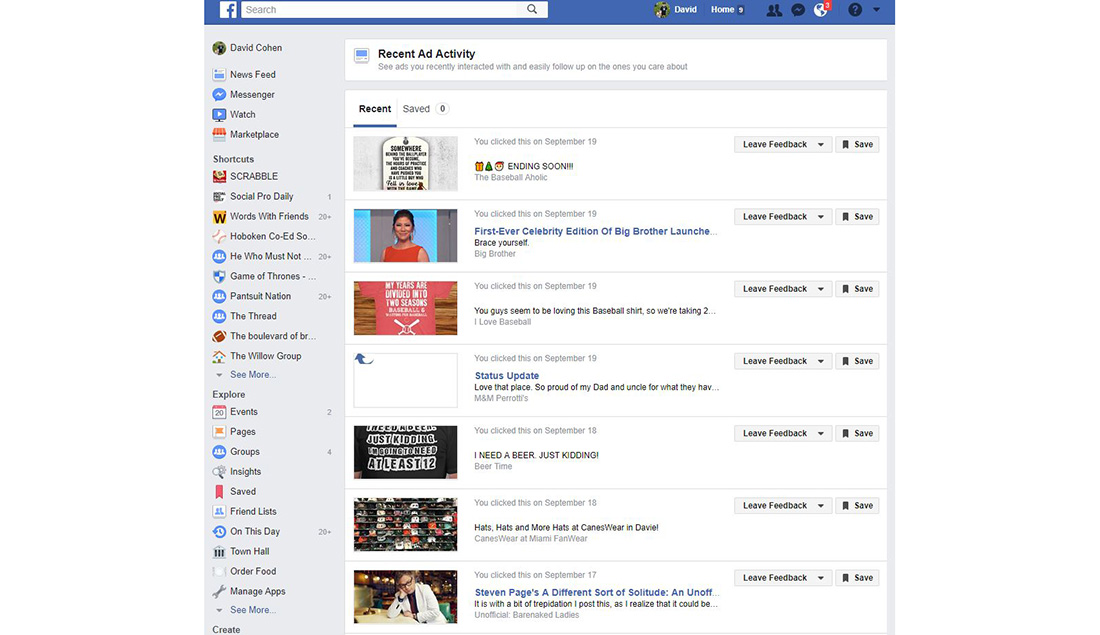
Read more at Adweek
Facebook addresses meddling
“I wish I could tell you we’re going to be able to stop all interference, but that wouldn’t be realistic,” Zuckerberg said on Thursday. The announcement came shortly after Facebook agreed to provide thousands of ads to Congress. Zuckerberg’s nine-part plan to reduce interference begins with an investigation into ad buys over the last year. Future efforts focus on strengthening the ad review process, and providing deeper transparency for readers.
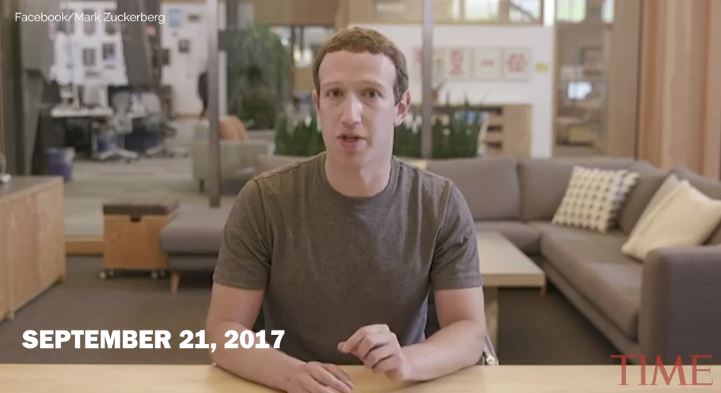
Read more at Time
Open Instagram directly from Facebook
A few months ago, we mentioned Instagram alerts appearing inside the Facebook app. This week, the social giant confirmed that you will soon be able to open Instagram from within Facebook. The integration closes the loop on Facebook owned apps. More interestingly, the move creates easy cross-app capability across four of the five all-time top app downloads on iOS.
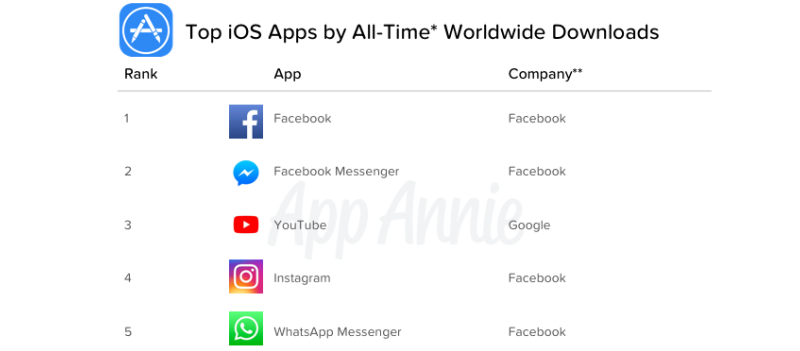
Read more at TechCrunch
Facebook adds WhatsApp button
Danish users spotted a WhatsApp button on Facebook mobile this week. The feature appeared under the Menu section on Android devices. Like the Instagram test above, we expect Facebook will be steady and cautious with user acceptance testing. The perfect outcome will walk the delicate line between thoughtful integration and social monopoly.

Read more at The Next Web
Instagram Sound
Innovation is measured in both incremental and exponential advancements. Instagram has added a thoughtful, incremental UI advance by making the audio setting “sticky” across videos. Previously, if you opted for audio to be off on videos, it would remain off for all videos until you changed them individually. Now, if you change the setting, the option remains static. Consequently, users are more likely to increase video views in their browsing sessions.
Read more at Adweek
Kodak app will find your gems
No one had heard of Vivian Maier until John Maloof discovered her discarded negatives at an auction in 2007. A new app from Kodak will prevent this from happening to your undiscovered masterpieces. The app can be downloaded, or accessed as a Facebook chat bot. Using AI and algorithms, the app will scour your pics and evaluate content, composition, location, and several other data points. The recovered photographs can be shared on social, or ordered for printing for your next gallery exhibit.

Read more at Engadget
Instagram goes wide
If you are carefully curating an Instagram presence that exudes artistic expression both at the individual and gallery level, it could soon be wrecked. Several Instagram users noticed the 3-wide gallery view change to 4-wide this week. Instagram has not commented whether this was a test or a glitch. Meanwhile, meticulous columnar planners have been fast to criticize the potential change.

Read more at NYMag
Pinterest taste graph
The picture sharing platform is unlocking 5,000 new interests that marketers can target. “Taste Graph” is Pinterest’s name for the pattern of what a user is interested in, and how that interest will evolve. The changes are trackable in both the short and long term, like jumping from pictures of whiskey glasses, to pictures of whiskey recipes, to trips to Kentucky.
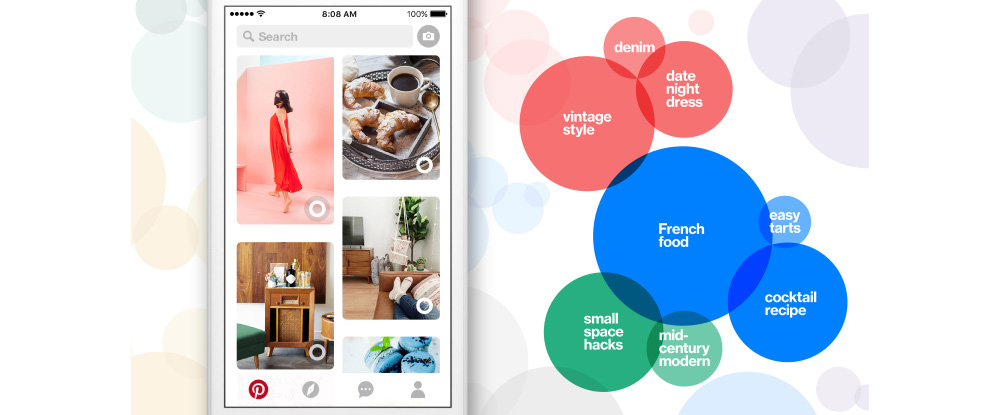
Read more at TechCrunch
Zuck gives up on non-voting shares
More than a year ago, Mark Zuckerburg announced a plan to generate more Facebook stock without diluting his control of the company. They key to his plan was to offer stock that gave no voting rights to its owners. This was a plan Google successfully navigated in 2012. Class action suits were filed in the same week of the announcement. However, rather than testify in the suit, Zuckerberg gave up on the idea this week.
Read more at Ars Technica
Twitter deleting extremism
Twitter deleted 299,649 accounts in the first half of 2017. The effort is indicative of Twitter’s desire to get out in front of quashing hate content, rather than having governments intercede with take-down notices. Twitter says that 95% of the take-downs came from internal efforts, rather than external reports.
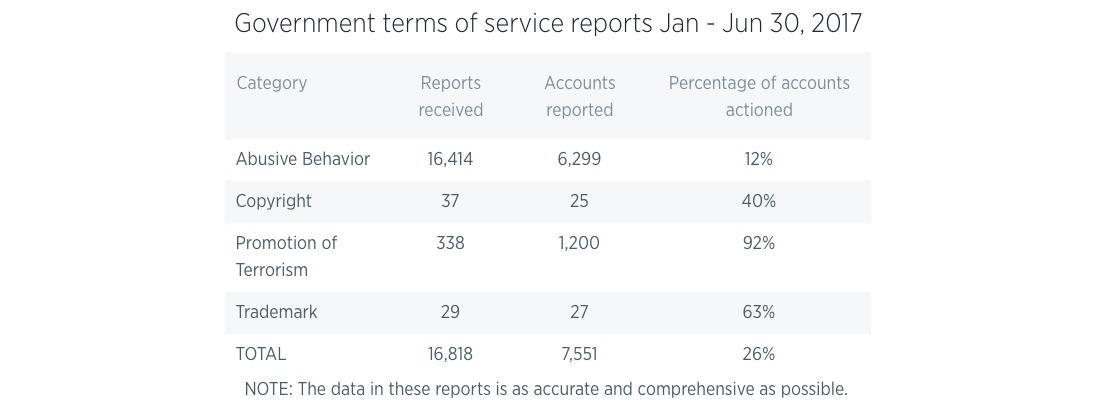
Read more at Mashable